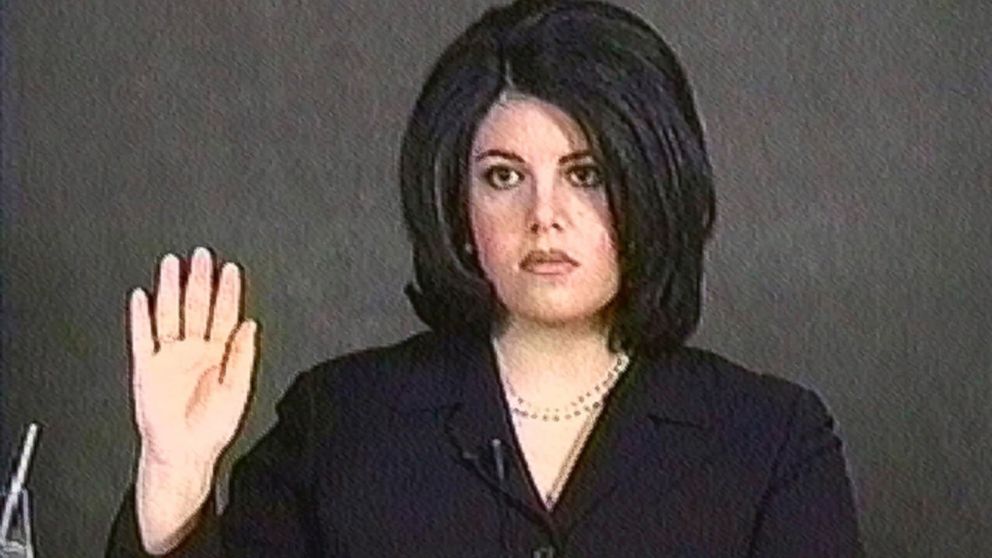5 Ways the Lewinsky Scandal Would Be Different Today
Lewinsky explains how it's now possible to reclaim your public image.

— -- Monica Lewinsky is reclaiming her story.
In her second column for Vanity Fair magazine, published online today, Lewinsky writes about how people who are tarnished in public scandals or facing bullying online have an unprecedented opportunity to defend themselves -- through social media, online essays, and other forms of modern communication.
Monica Lewinsky: 'I Was the Most Humiliated Woman in the World'
The Monica Lewinsky Essay: 5 More Revelations
Using Lewinsky's own advice, we wondered how the scandal involving her and President Bill Clinton may have been different if it happened today:
1) Taking Charge of the Narrative
News of the "Lewinsky scandal" first broke in January 1998, when a relatively new online outlet called the Drudge Report posted a story about a White House intern having a sexual relationship with the president. From there on, Lewinsky was largely defined by a series of characterizations: the woman in the blue dress who performed oral sex on the president.
"More and more I’m finding that those who have lost command of their public narratives, do the opposite. They shake off the assault or the slight, take control of their rightful place in their community or the larger culture, and use social media to return the salvo," Lewinsky wrote. "They refuse to have their identities swindled or misshapen. Instead, they take charge. They turn the attack on its head and use it as an opportunity for self-definition, instead of just taking blood as they go down."
2) Writing an Online Rebuttal
After news of the affair broke, and President Clinton issued a denial referring to Lewinsky as "that woman," the former White House intern escaped the public eye, hiding out at her mother's house. If the scandal happened today, perhaps Lewinsky would have published an essay on the Internet that addressed the her side of things.
"I was listening to NPR’s 'All Things Considered.' One segment of the show addressed a trend: 'The Rise of the Online Rebuttal,'" Lewinsky wrote in Vanity Fair, quoting from the NPR segment that explained the rebuttal "allows for people who feel they have been wronged or misrepresented to forcefully answer in their own voice."
3) Using Social Media to Push Back
After remaining silent through the long and very public investigation into her affair with the president, Lewinsky finally participated in a biography written about her and was interviewed by Barbara Walters for an ABC News special in 1999, two traditional forms of media relations. But today, Lewinsky could have direct and immediate access to the millions of Americans reading about her story; she could tweet, Instagram or write lengthy Facebook posts directly to readers.
"[The NPR] report reminded me of a story that had come across my browser in recent days. It concerned a young woman who was not even remotely a public figure until acquaintances began body shaming her. They graffiti’d some rocks on a local beach with ridiculous insults about her rear end," Lewinsky wrote. "She posted a sweet and sassy photo of herself on social media -- a photo taken from behind, peering over one shoulder, grinning."
4) Capitalizing on the Bad in Order to Do Good
Lewinsky has written previously about how she had trouble finding work for years after the Clinton scandal, but she pointed out in today's VF essay that people who have been bullied have capitalized on their worst moments by using them as a platform to spread awareness.




